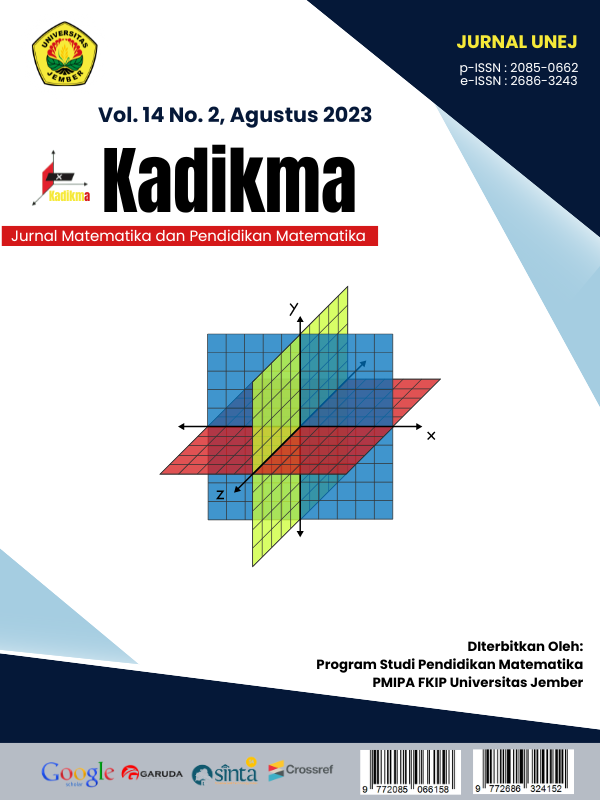PENERAPAN RME BERBASIS BUDAYA PEKALONGAN TERHADAP KEMAMPUAN PEMAHAMAN KONSEP MAHASISWA PADA MATA KULIAH STATISTIK
DOI:
https://doi.org/10.19184/kdma.v14i2.44981Abstract
Multivariate Statistics and Educational Research Statistics courses are useful courses for students, so students need the ability to understand concepts in mastering statistical material. This research aims to determine the average ability of students to understand concepts in Multivariate Statistics and Educational Research Statistics courses by implementing the RME approach based on Pekalongan culture. This research is quantitative research with the form of an experimental design, namely quasi experimental design. The subjects in the research consisted of 15 students taking Multivariate Statistics and Educational Research Statistics courses at the Mathematics Education Study Program, Pekalongan University. The data collection technique was carried out by testing the ability to understand concepts accompanied by problems in the cultural context of Pekalongan. The data analysis technique was carried out using multivariate analysis using the Hotelling's Trace test (T2 Hotelling), with a prerequisite test in the form of a multivariate normality test. The results of the research show that the average students' conceptual understanding ability in the Multivariate Statistics and Educational Research Statistics courses can reach a score of 70. If we look at the results obtained, the average conceptual understanding ability in the Multivariate Statistics and Educational Research Statistics courses is 80 and 85,333. These results indicate that the implementation of learning using the RME approach based on Pekalongan culture is effective in students' ability to understand concepts.


.png)
.gif)




